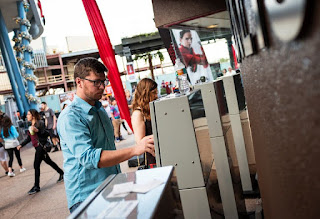That the startup which created the helmet is in Islamabad, Pakistan tells us a lot about the spread of technology and programming competence. JL
Samar Warsi reports in Motherboard:
Let’s Innovate has designed a helmet that will call emergency services and text your relatives if you fall off your motorcycle. If a rider falls off the bike, the helmet automatically notifies emergency services nearby using its GPS. It comes equipped with Bluetooth, speakers, a heart rate sensor (which measures the heartbeat from the head via a blood oxygen sensor), and a dashcam.The company (also) plans collect data and sell it to third parties, such as advertisers.



























































